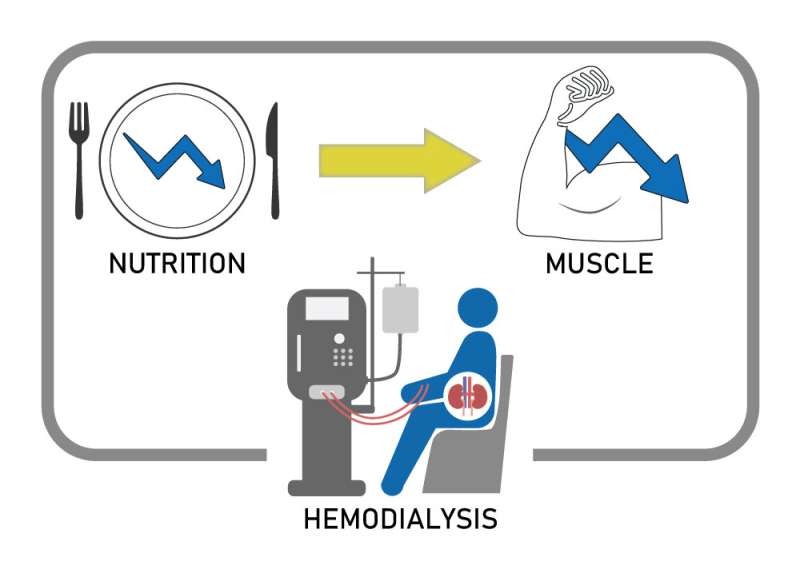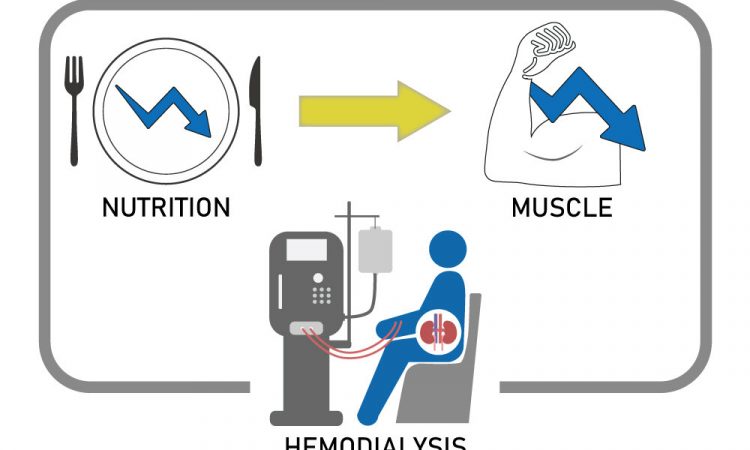
End-stage kidney disease patients undergoing maintenance hemodialysis (MHD) often struggle with malnutrition and sarcopenia, a form of musculoskeletal atrophy that amplifies mortality. Untangling the long-suspected relationship between malnutrition and sarcopenia has bedeviled researchers due to the lack of a diagnostic standard for nutritional health or status. Scientists from Osaka Metropolitan University took a step toward explaining this relationship using a convenient, objective, Japan-developed nutritional risk index, a new approach for early detection of sarcopenia in MHD patients. Their findings were published in Frontiers in Nutrition.
Conventionally, investigating malnutrition in MHD patients has involved complicated nutritional screening tools that often require examiners’ subjective assessments, making them time-consuming and irreproducible. Moving beyond this practice, the research team made use of the Japanese nutritional risk index (NRI), a nutrition indicator designed for MHD patients. “The NRI score is calculated from four objective and routinely measured variables, namely creatinine, total cholesterol, serum albumin, and BMI,” elaborated Dr. Masafumi Kurajoh, first author of this study. “A high NRI score signals malnutrition.”
Sarcopenia is characterized by losses of muscle mass, strength, and function. The researchers collected data on the NRI scores, muscle mass, muscle strength, and physical performance of 315 MHD patients, who were divided into low-risk and medium/high-risk groups according to their NRI scores. The patients with low muscle mass along with either low muscle strength or low physical performance were diagnosed with sarcopenia. Those experiencing all three conditions were considered to have severe sarcopenia.
Results of multiple regression analysis show significant relationships between the NRI score or the NRI score-based medium/high-risk group and sarcopenia and severe sarcopenia, as well as low muscle mass, strength, and physical performance. These findings confirm that malnutrition contributes to sarcopenia and does so through diminishing the MHD patients’ muscle mass, strength, and physical performance. Furthermore, the results indicate the usefulness of the NRI score as a sarcopenia detection tool.
Source: Read Full Article
